Nutritional Information
• Calories: Approximately 15-20 calories per teaspoon.
• Carbohydrates: About 4 grams per teaspoon.
• Vitamins and Minerals: Contains small amounts of vitamins and minerals, including iron, magnesium, potassium, and vitamin B6.
Health Benefits
• Rich in Minerals: Jaggery retains many minerals that are lost in the refining process of white sugar, making it a slightly more nutritious alternative.
• Digestive Health: Traditionally believed to aid digestion and cleanse the digestive tract.
• Energy Boost: Provides a quick source of energy due to its high carbohydrate content.
• Detoxification: Some believe it helps detoxify the liver by flushing out toxins.
• Anemia Prevention: The iron content in jaggery may help prevent anemia by increasing hemoglobin levels.
Cooking Uses
• Sweetener: Used as a natural sweetener in a variety of dishes, including sweets, desserts, and beverages.
• Traditional Sweets: Essential in making traditional sweets like ladoo, chikki, and jaggery rice.
• Savory Dishes: Adds depth to savory dishes such as curries, sauces, and chutneys.
• Beverages: Used in drinks like jaggery tea, traditional alcoholic beverages, and flavored water.
Storage
Store in an airtight container in a cool, dry place to prevent it from hardening or getting sticky. If it hardens, it can be softened by grating or melting it slightly.
Production Process
• Extraction: The sap or juice from sugarcane or palm trees is extracted and then filtered to remove impurities.
• Boiling: The filtered juice is boiled in large, shallow pans until it thickens and starts to solidify.
• Cooling and Molding: The thickened syrup is poured into molds or allowed to cool in large blocks or rounds, forming solid jaggery.

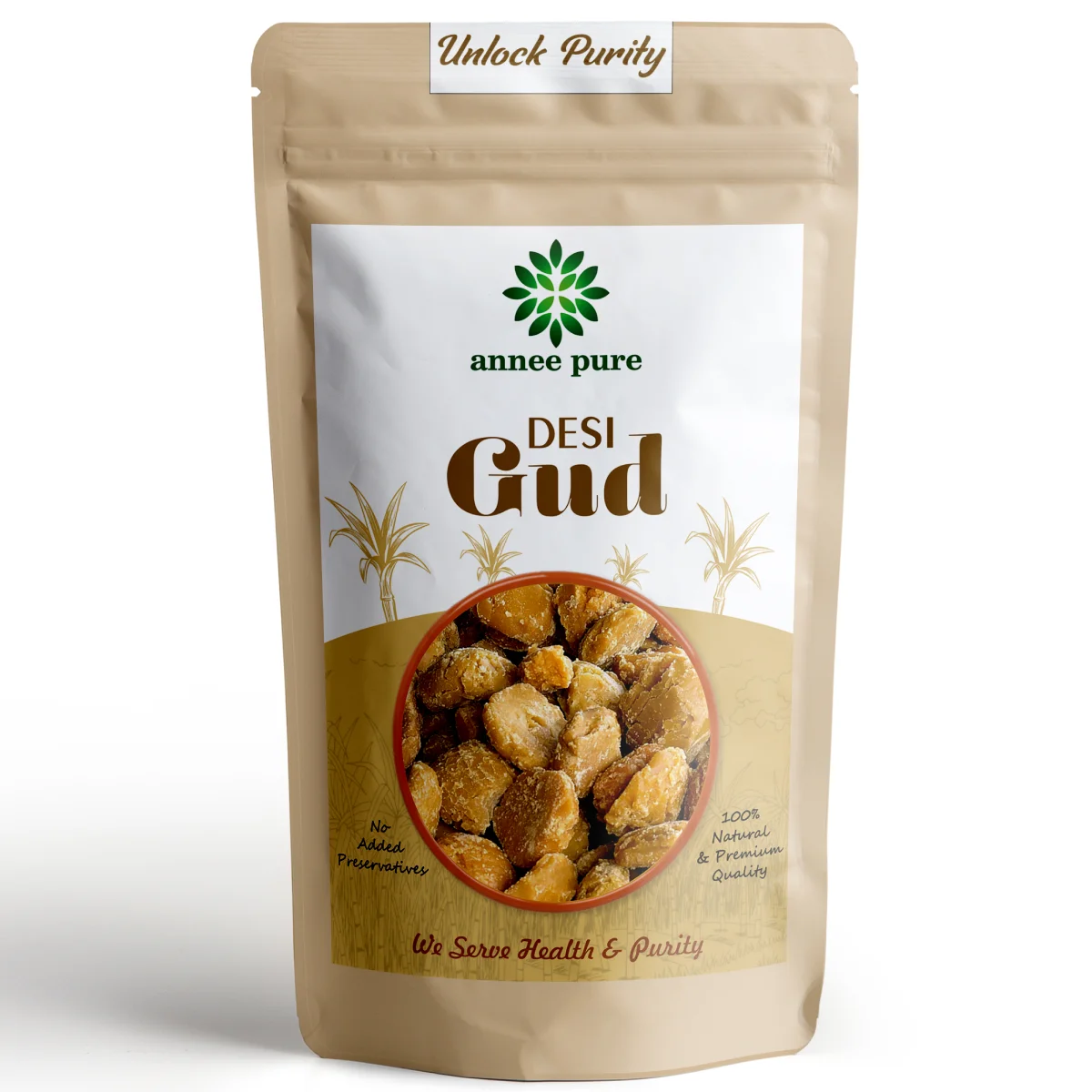
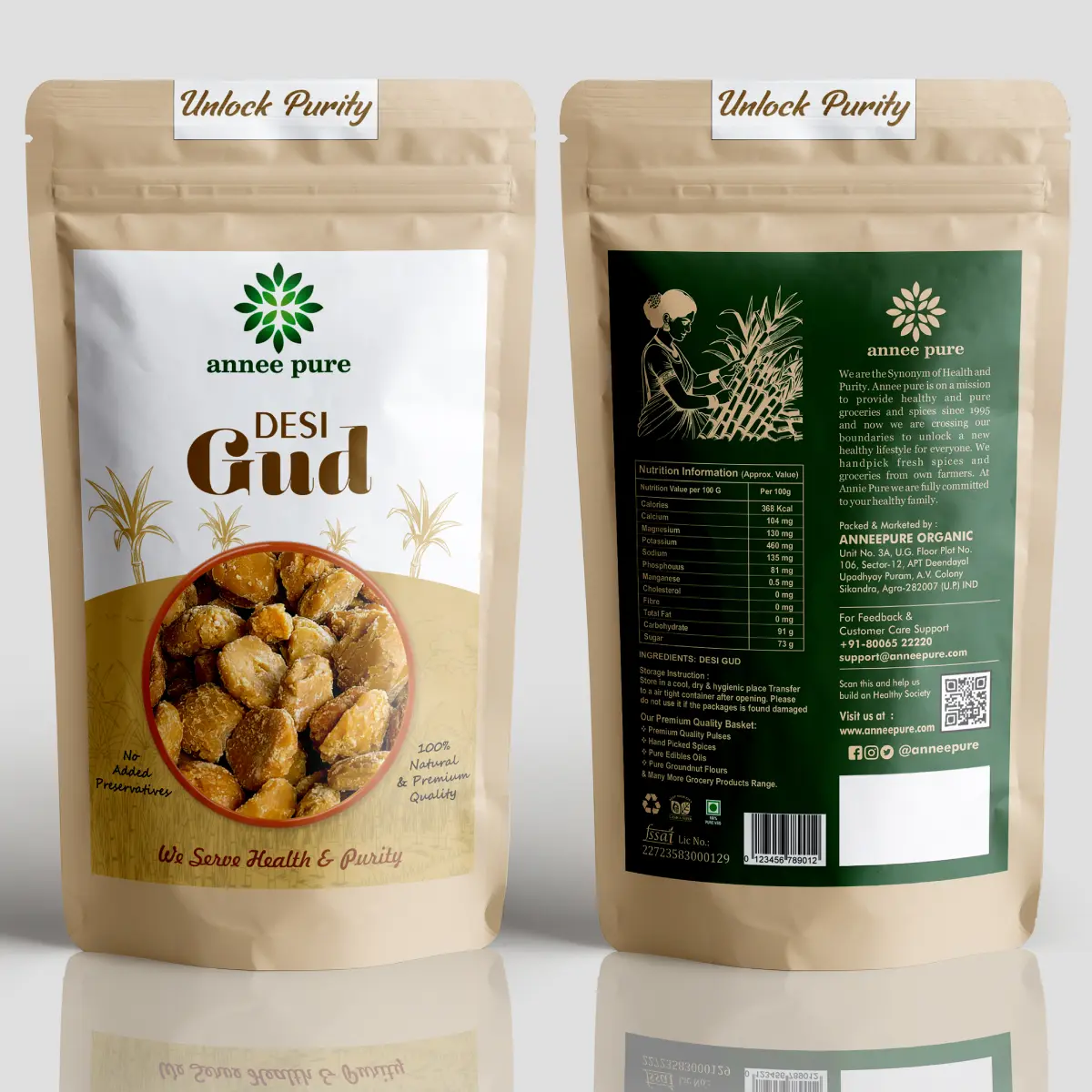



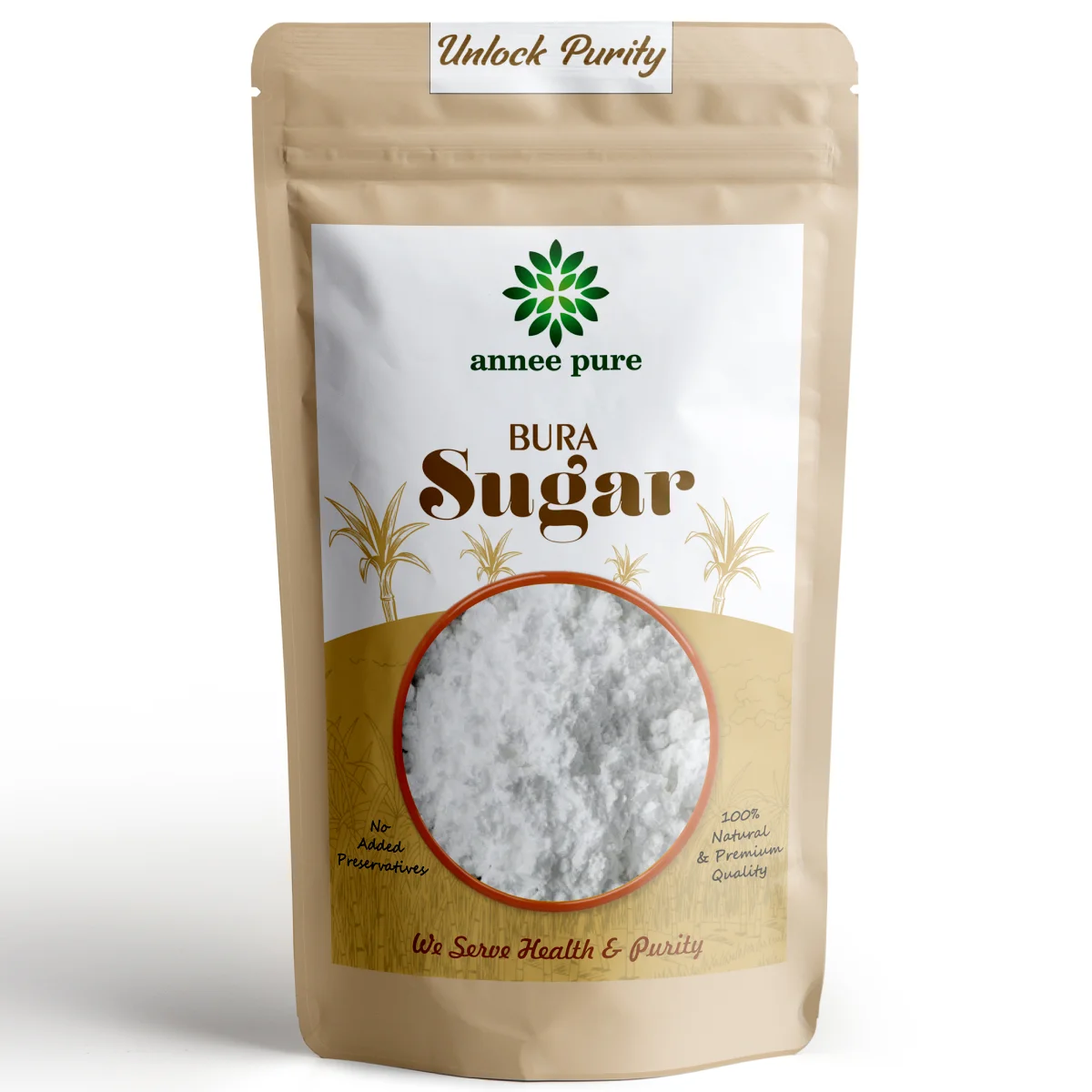
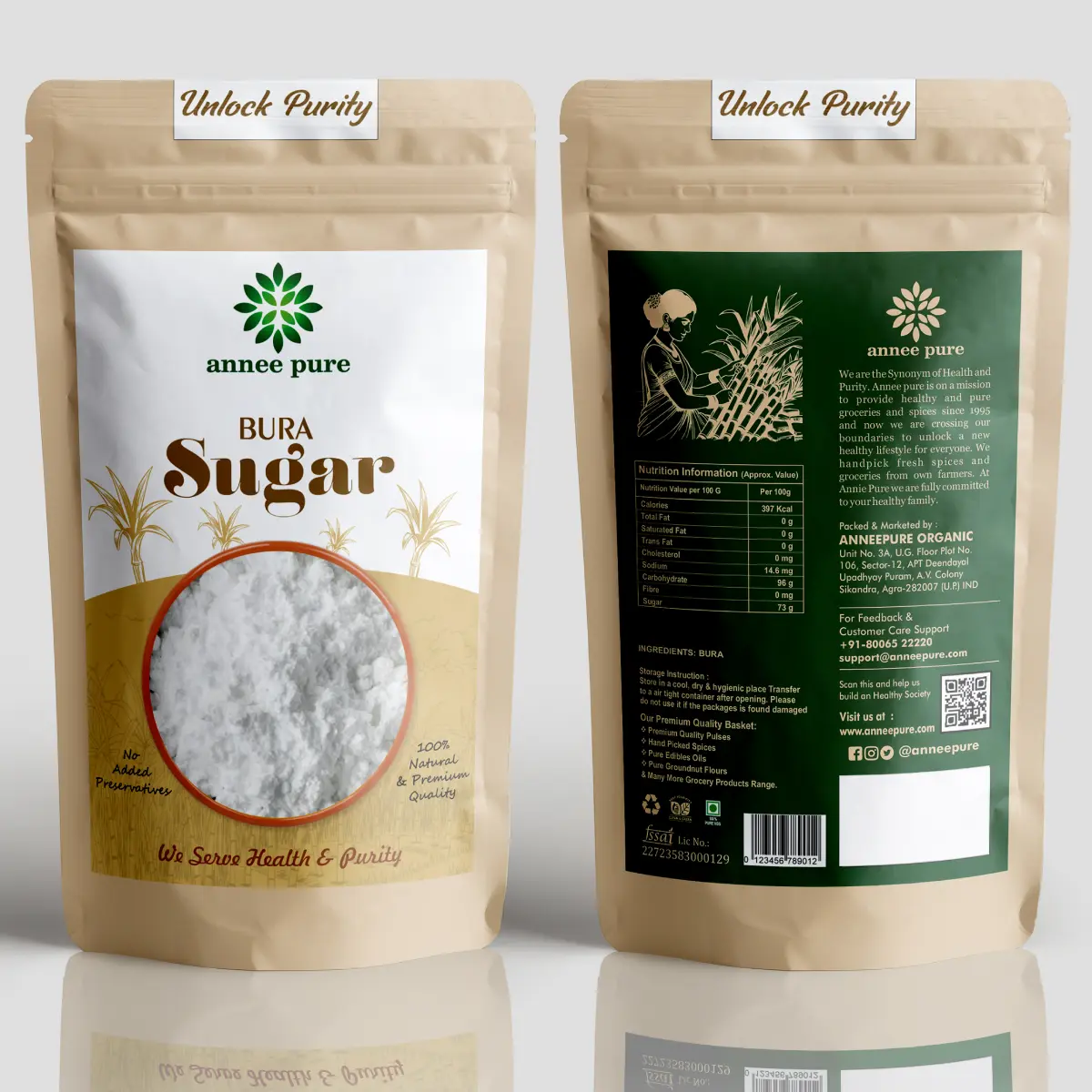
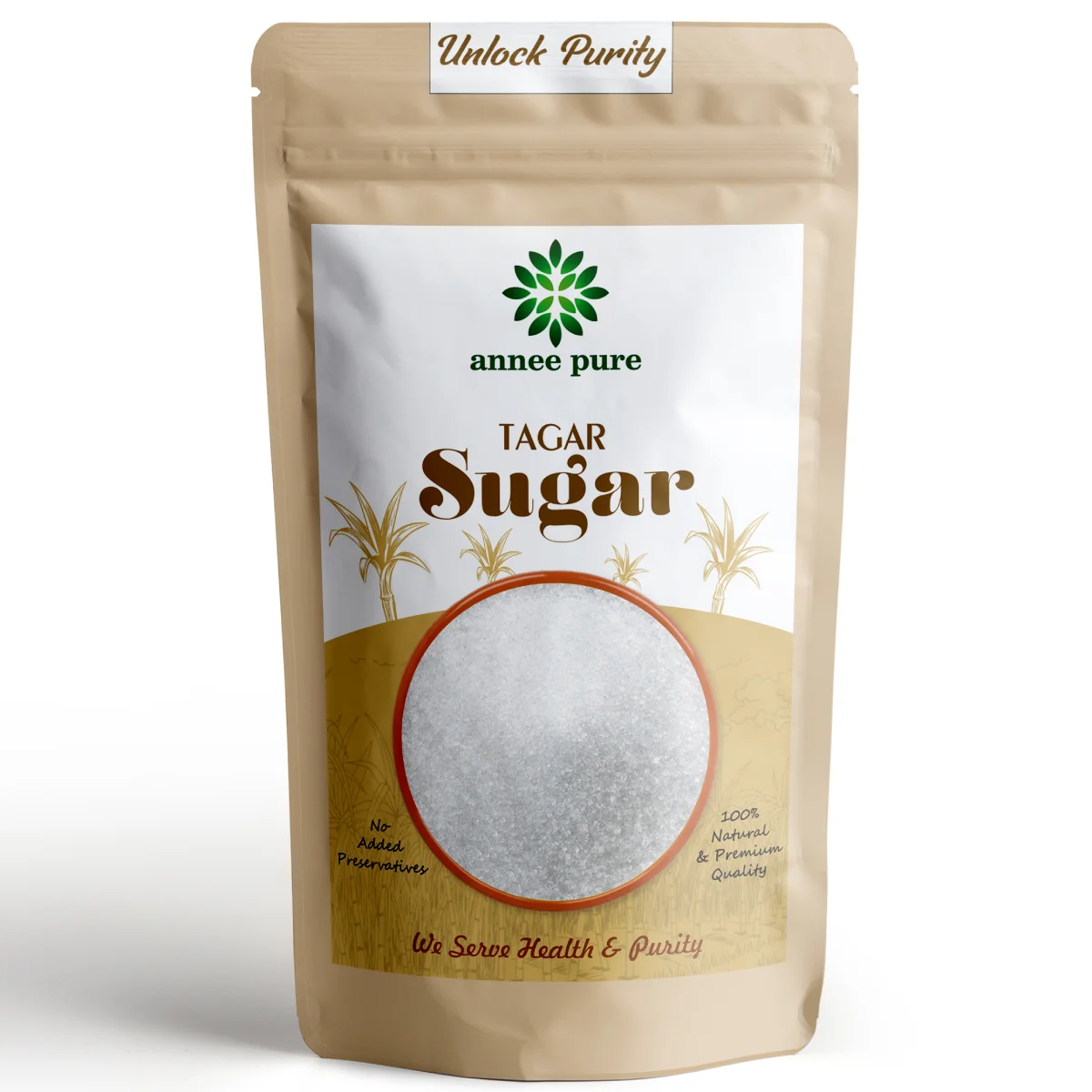
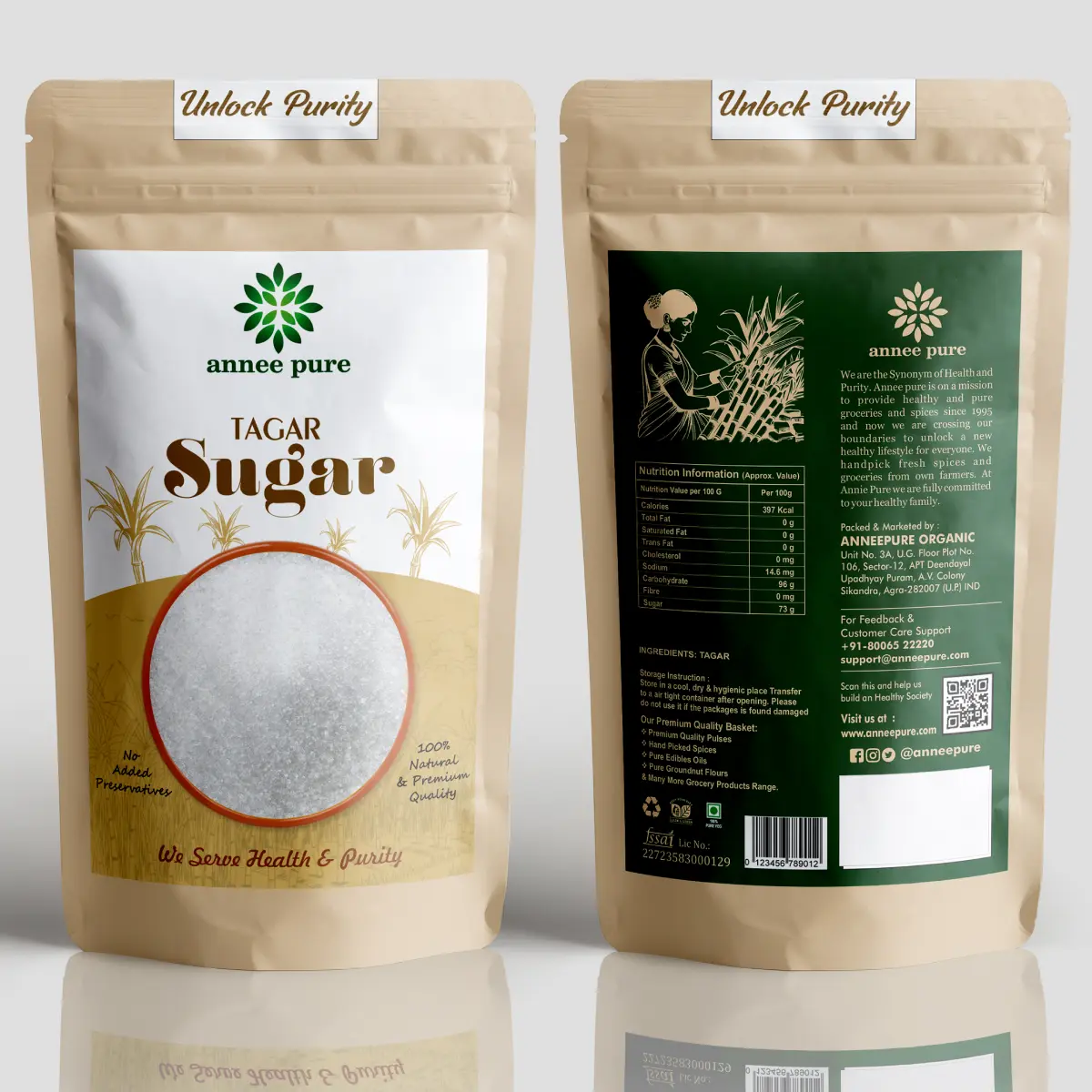
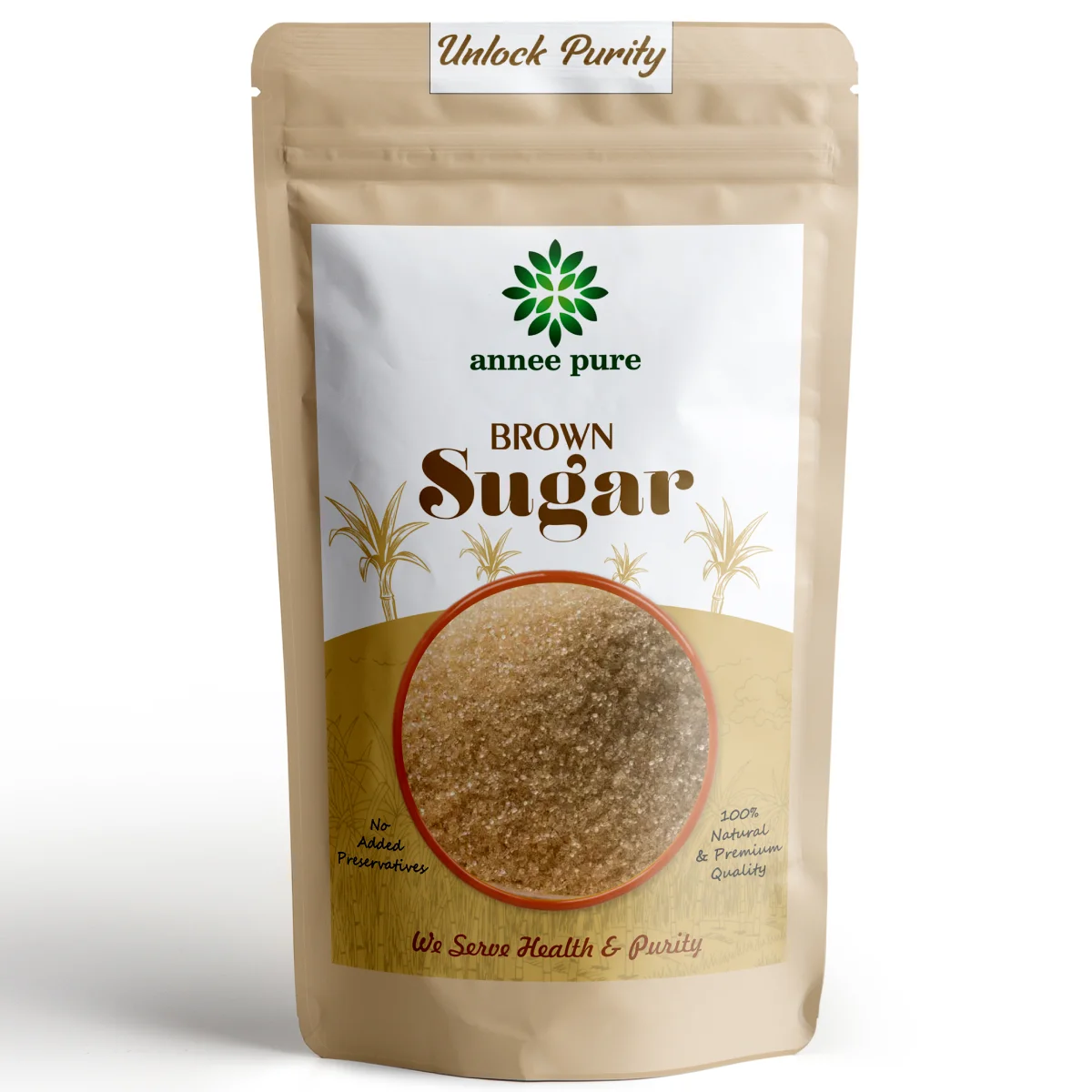
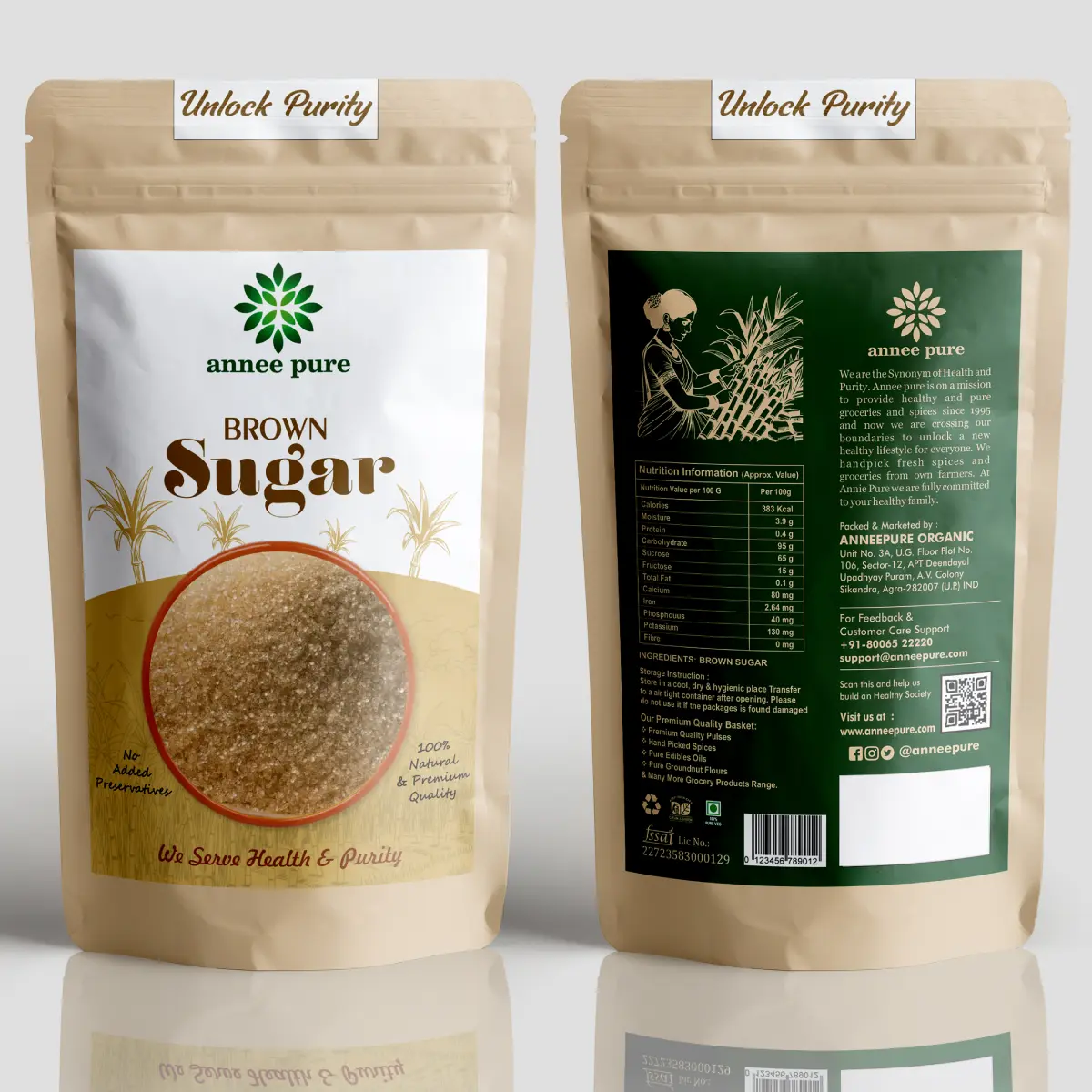
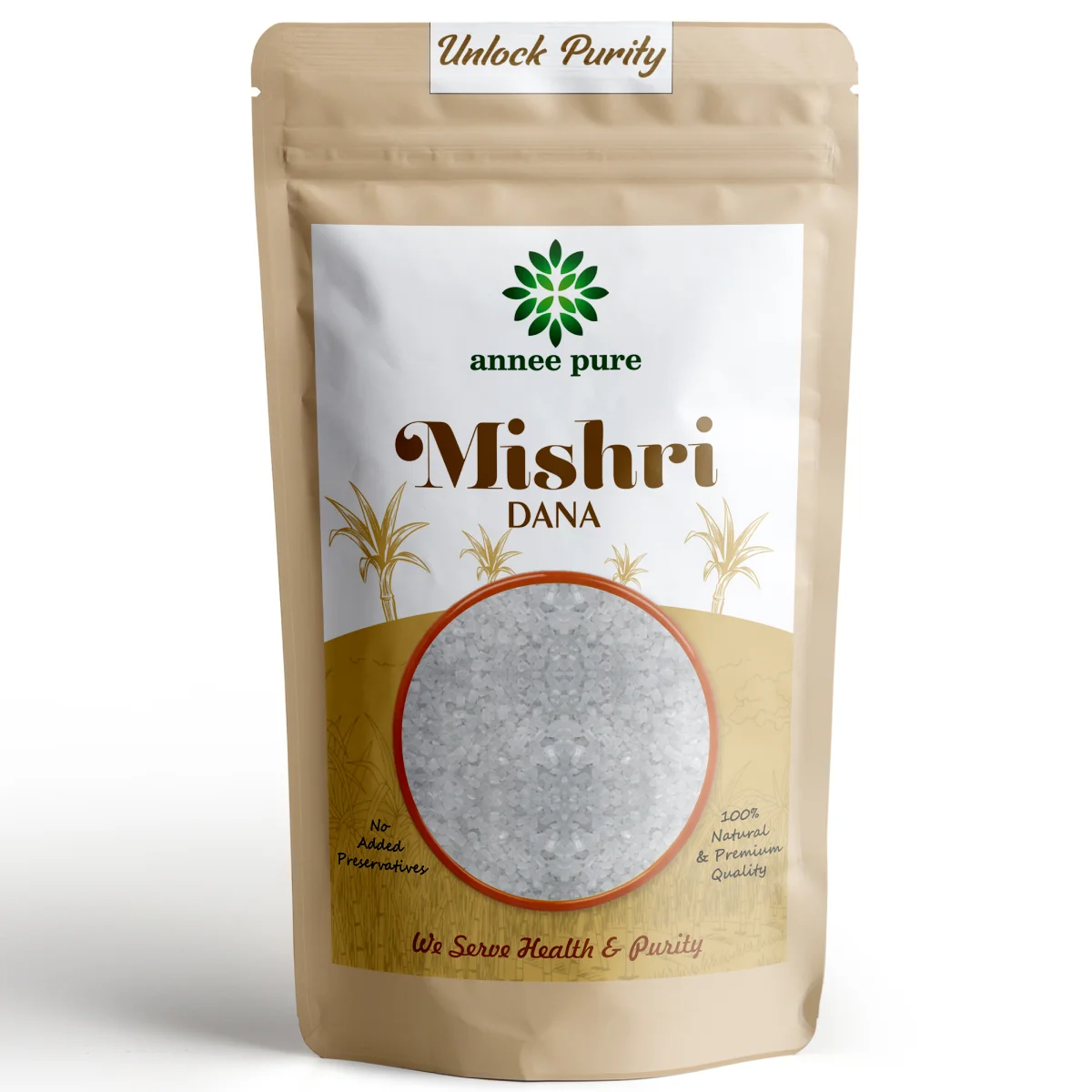
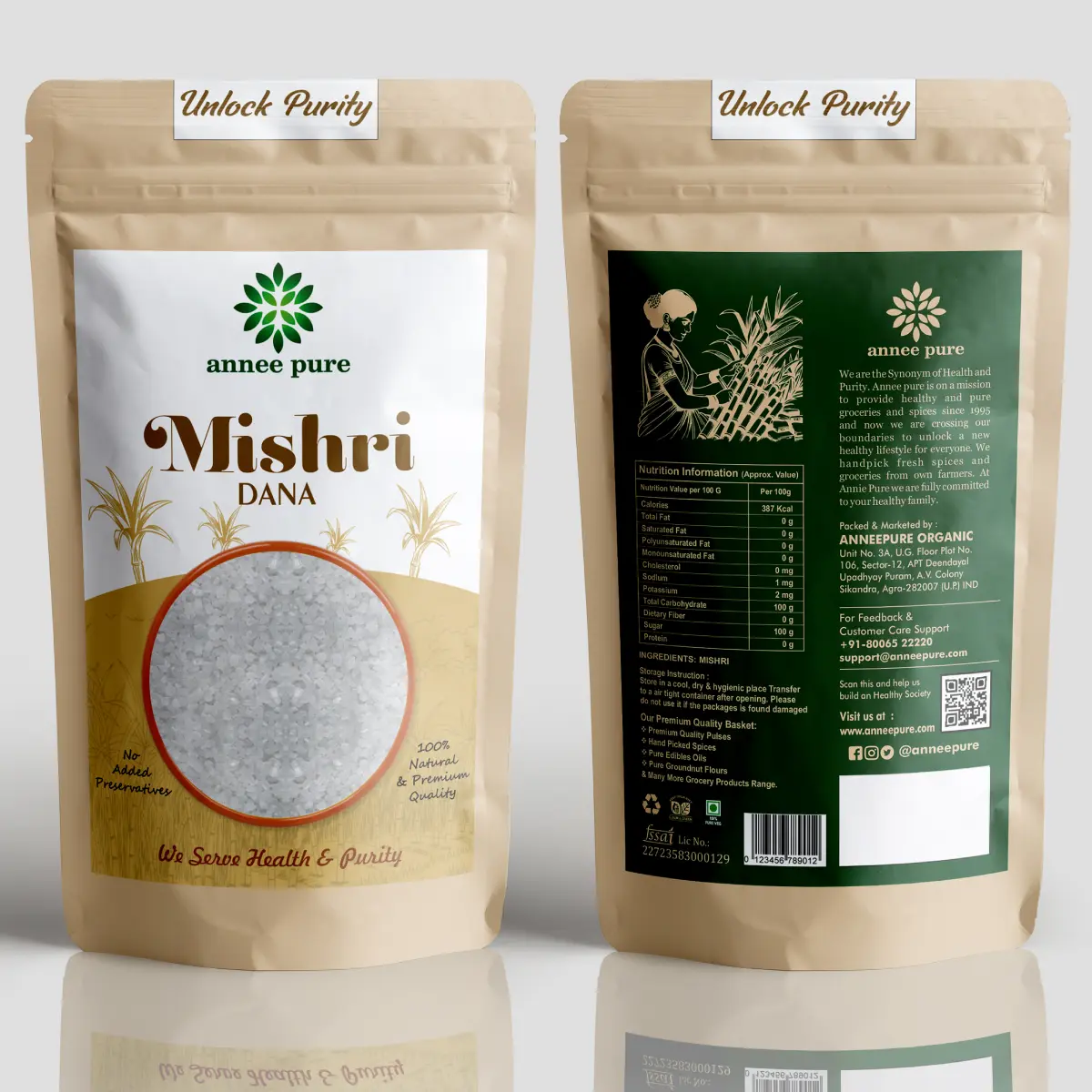

Reviews
There are no reviews yet.